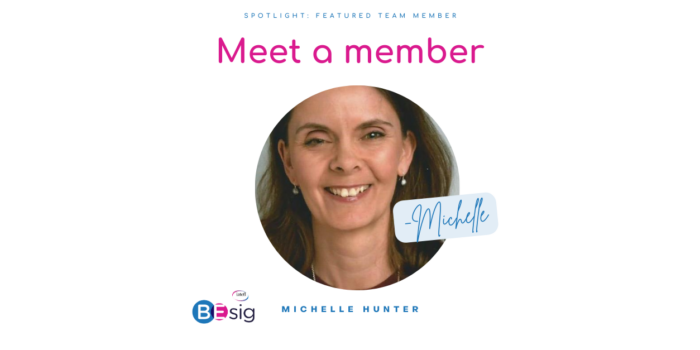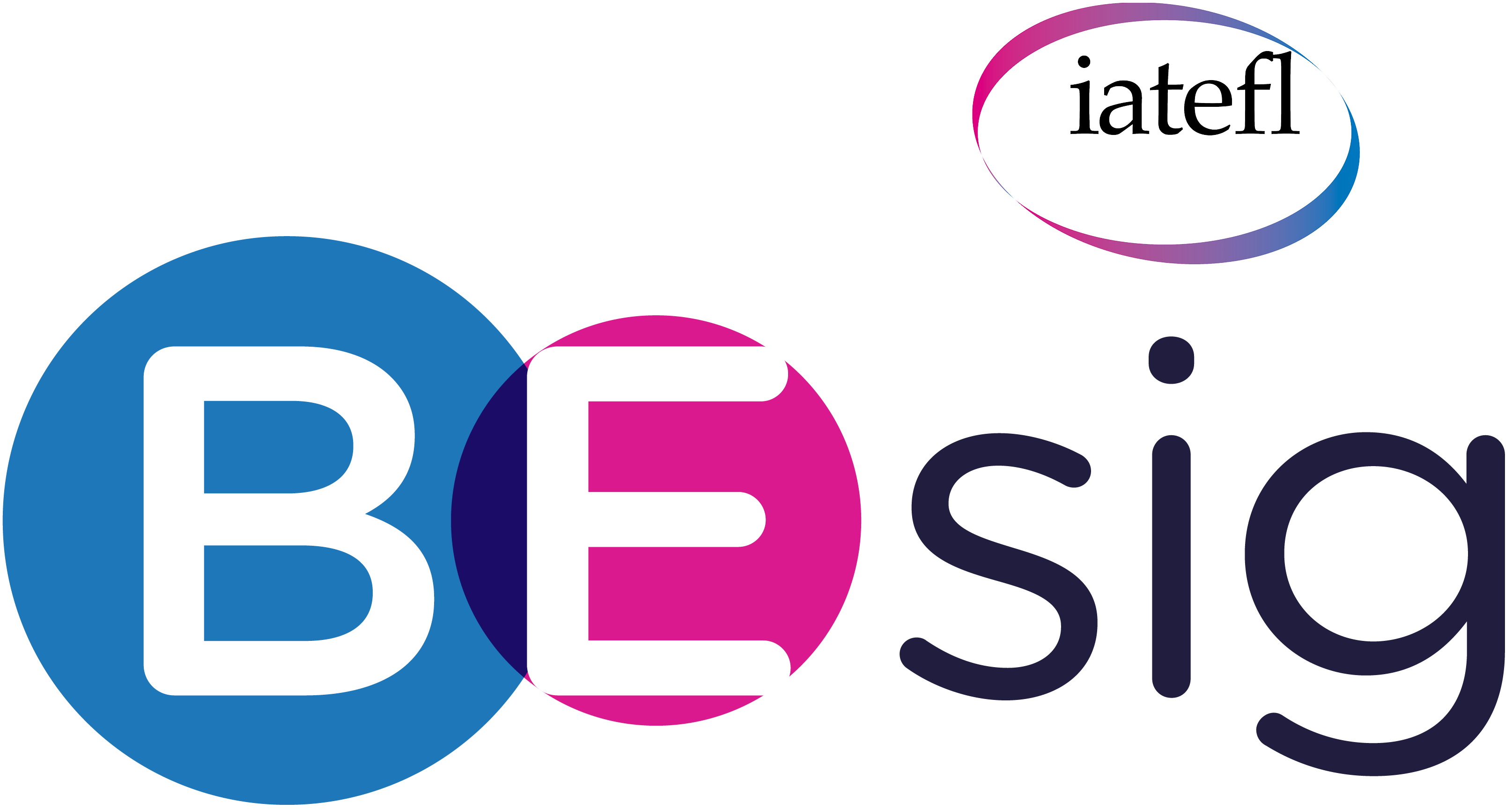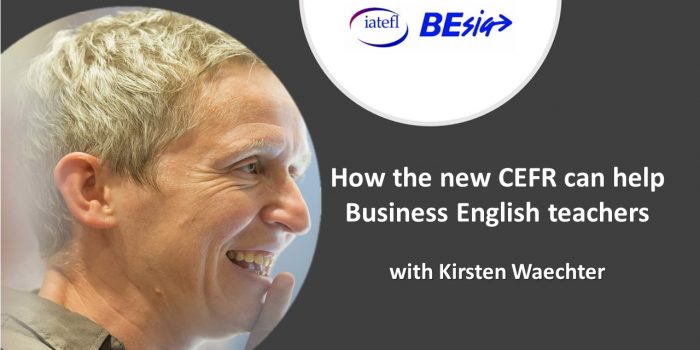
In the inaugural interview of 2024, we extend warm New Year's greetings, as we catch up with Michelle Hunter, IATEFL BESIG's former treasurer and a self-described lifelong learner. Join us as we delve into her current academic pursuits and discover how the invaluable support from IATEFL BESIG has been instrumental in shaping her journey. Here's to a year filled with continued growth, learning, and inspiring stories!
Bio
Based in Germany, Michelle’s career has centered around business English, both in-company and in academia, since 1998. An IATEFL BESIG member since 2010, Michelle cites BESIG as having been a “gamechanger” in her decision to remain in the field at a pivotal moment. Ever since, she has grown through her own academic and professional milestones including expanding into teacher training - she is co-founder of The Distance Cert IBET with Ben Dobbs - and achieving a Masters in Coaching in Education (with Distinction). She is currently in the homestretch of a PhD in Applied Linguistics, and enjoying mentoring future business English trainers through TDCI.
1. What are you currently up to professionally ?
At the moment I am finishing up a PhD in Applied Linguistics at the University of York in the UK. I am researching how students and teachers manage affect arising from studying / teaching in English as the medium of instruction (EMI) in a German university.
I am fascinated by the concept of affect, which along with cognition is an indelible part of learning. It refers to any basic experience of feeling or emotion, ranging from unpleasant to pleasant, and from calm to agitated; from the simplest to the most complex sensations of feeling, and from the most normal to the most pathological emotional reactions.
2. How did you get interested in EMI - English as the Medium of Instruction, as a topic?
I became aware of the concept when I first heard it mentioned during a talk given by Divya Madhavan at a BESIG Symposium hosted by TESOL France in Paris. It piqued my interest then, and a few years later, when I was teaching in a university setting, I found myself reflecting, ‘how was the experience of delivering content in English for my students and colleagues?’
3. What prompted you to take on a PhD?
When I was half way through doing a Masters programme and my supervisor had to curb my enthusiasm for conducting a major piece of research, I thought, “Right, I’ll get this done so I can move onto a full-blown research project!” I was so enthralled by the language used for describing academic research, I wanted to keep going and understand it all at a deeper level.
Language and communication are very emotional things for me. While I am proud of being able to speak German, I don’t feel like I am me if I am not communicating in my first language. This made me think about the impact on identity and extra cognitive load that I assumed non-native speaking students - and their teachers - on a degree program must encounter. I got curious; how do they overcome that?
Most research goes into the cognitive side of learning, while the AFFECTIVE side of things get sidelined. You can’t have one without the other. From my research, I concluded that it is more about the “I” in EMI - the instruction - than the E (English) in EMI. It’s HOW the content is being instructed: didactics, presentation skills, building rapport in the classroom. The intercultural aspects of delivering instruction can create more challenges than the language used - at least that’s what I found among my participants.
4. What kind of role has IATEFL BESIG played in your career path?
In hindsight, I realize I am a lifelong learner and my career trajectory has been an organic unfolding from one stepstone of learning and personal development to another. Since getting into business English, my path has been a continual block building in CPD/PD, and I just kept going till I hit PhD level. BESIG has played a significant role throughout.
I was on the verge of leaving the profession when I attended my first IATEFL BESIG conference in Bielefeld in 2010; the whole experience blew me away. I had been feeling really low, quite lost, and thought, ‘’English teaching is not bringing me anything and I’m fed up with it,” as I set off to Bielefeld to deliver a workshop.
At the conference, Mark Powell’s spectacular opening talk about Lean English made such an impression on me, I still remember it 13 years later.
5. What was your impression of IATEFL BESIG at that first conference?
Not only was everyone really professional, they were equally open and friendly and welcoming. It was just so easy to get on with people. Many of the people I met there are still close friends and colleagues today. I immediately went and signed up to IATEFL and have been signing up every year since. It was the best thing I could ever have done for my professional growth and career development.
6. What has IATEFL BESIG brought to you over the years?
Community is the biggest thing. I fit. I’m at home. Everybody who has been a member for more than a couple of years will say the same - they feel at home. It’s genuinely a sharing and caring community of decent, honest, hard-working people who are also keenly interested in business English.
Learning- “It was the starting point for everything.” What I have learned throughout my career, which was only meant to be a stop-gap - that first conference is where I turned the corner. It opened my eyes to learning to learn again.
7. What would you recommend to someone considering attending an IATEFL BESIG Conference or event?
COME ALONG! If attending the annual conference is beyond your means, explore what other options there are for being active in the community. In general, BESIG is such a rich resource, from the web resources to online events to the big annual conference. If you really want to attend the conference, there are scholarships on offer. I used to take on extra weekend classes and ring fence my earnings for CPD events. There is something for every level of participation. If you want to be part of the community, you need to BE part of the community. Reach out. Speak to people; connect with them. I guarantee you’ll be met by openness and willingness to support.
Interview by Susanne Nally
Edited by Shweta Paropkari
With inputs from Maria Szugfil
MEET A MEMBER is available to IATEFL BESIG members and non-members alike but only features our current members. Another reason to join us and “BE with BESIG.”



